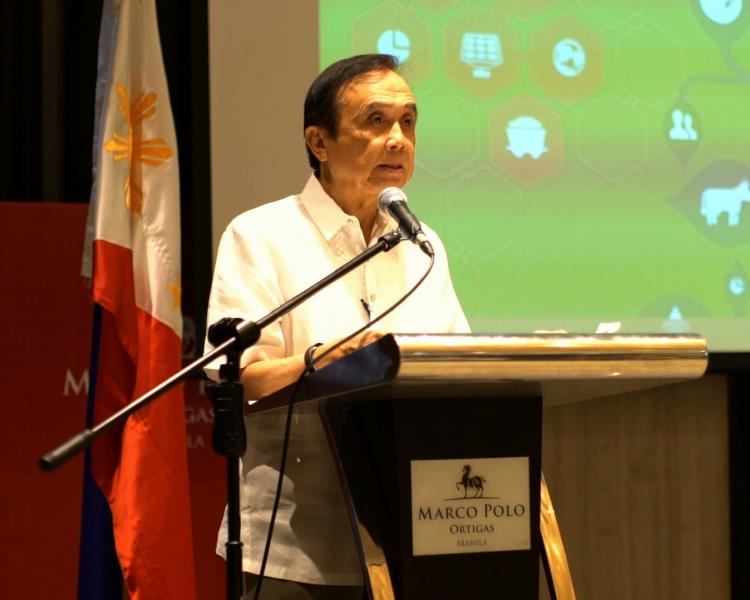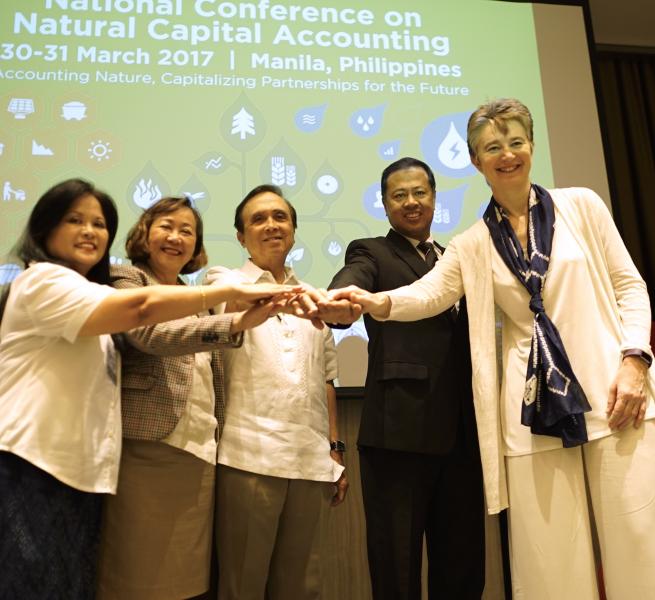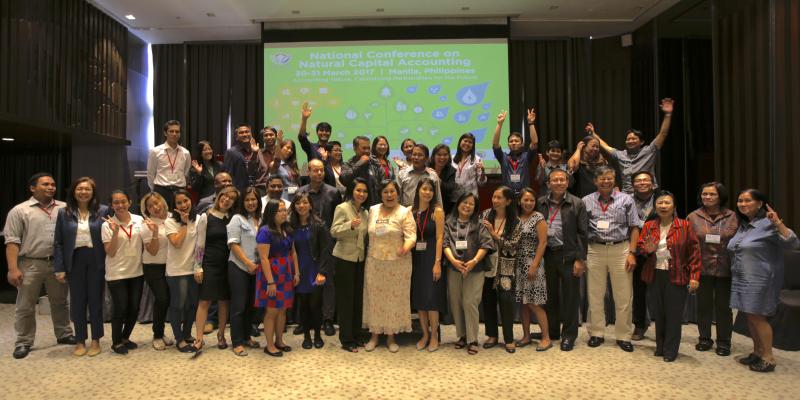The Philippines' National Conference on Natural Capital Accounting was attended by policymakers, academics and advocates.
The theme of the conference was “Accounting Nature: Capitalizing Partnerships for the Future.” Participants included high-level government officials and a cross-section of civil society organizations, non-governmental organizations, academia and the private sector from the Philippines and other WAVES member countries. The conference provided a venue for planners, policymakers, scientists, practitioners and advocates to showcase their research and best practices on NCA and valuation around six different themes that covered data management, financing and investment, innovations in environmental assessment, and NCA frameworks and tools.
“Let us instill in our minds and actions that caring for the environment and natural resources is everyone’s concern,” said Secretary Ernesto Pernia of the National Economic and Development Authority (NEDA) during his opening remarks.

There was no shortage of data and best practices as participants presented valuation studies and financing schemes that would provide new ways to sustain NCA work. A constant challenge for data producers and users alike is the need to aggregate and integrate data into a common language to make it available and accessible and, at the same time, make the findings understandable to policy makers and the general public. Efforts to improve information-sharing across the different government agencies and stakeholders is essential to mainstreaming NCA and institutionalizing its use. Additionally, data users and producers need to adapt data according to the different phases of the policy life cycle.

Arjan Ruijs of PBL Netherlands joined the conference via video patch to share the Netherlands’ experience in translating policy-relevant analysis. Ruijs emphasized the need for different expertise across stakeholders and using multiple channels to make accounts accessible.
National Statistician Lisa Bersales of the Philippine Statistics Authority (PSA) shared the department’s work on computing macroeconomic indicators to arrive at adjusted net income and adjusted net savings to inform development planning.
“Beyond GDP. That is really the phrase of this conference. We hear often that GDP is not enough for policy makers and program planners. We want to adjust GDP for accounting of environmental degradation so we can have a full picture to see if growth is sustainable or not,” said Bersales.
For the Philippines, mainstreaming NCA is more vital in light of two important global agenda: the Sustainable Development Goals, and the Paris Agreement on Climate Change, both of which the Philippines has joined.
“The Philippines, which by now has strong expertise in natural capital accounting, has taken concrete steps to mainstream NCA into policy making. May we be guided by recognizing the vital role that NCA can play in sustainably managing and protecting the critical natural resource ecosystems on which future generations of Filipinos will depend,” said Mara Warwick, Philippines Country Director for the World Bank Group.
The Philippines has taken concrete measures in mainstreaming NCA into its policy planning.
The Duterte Administration’s Philippine Development Plan 2017-2022 acknowledges the range of products and services provided by ecosystems and recognizes ecosystem valuation as necessary to facilitate informed decision making, provide better alternatives and trade-offs, and generate income and employment in the rural areas and create wealth for the nation.
To conclude the conference, Assistant Secretary Mercedita Sombilla of NEDA presented the roadmap for the institutionalization of NCA, which aims to ensure that NCA becomes an integral part of the regular work program of government agencies, both at the national and local levels. The roadmap laid out the components for the institutionalization of NCA, which include institutional arrangements and resource requirements in the compilation and development of accounts beyond Phil-WAVES implementation.

